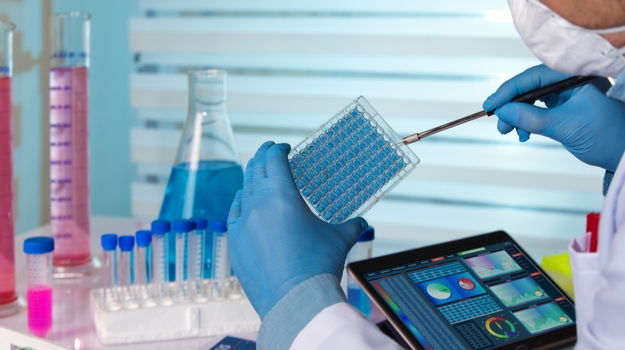
Certainly! Here’s an overview of Biochemical Engineering, including key aspects and a syllabus typically followed in India:
Key Aspects:
- Bioprocess Engineering: Study of processes involving biological systems such as fermentation, enzyme reactions, and cell culture. This includes understanding mass and energy transfer phenomena, reactor design, and optimization of bioprocesses.
- Bioreactor Design and Operation: Understanding the principles of bioreactor design, operation, and scale-up for the cultivation of microorganisms, cells, and enzymes. This involves studying different types of bioreactors, mixing mechanisms, aeration, and agitation strategies.
- Enzyme Technology: Exploration of enzyme kinetics, enzyme immobilization techniques, and applications of enzymes in biocatalysis, bioconversion, and biotransformation processes. This includes understanding enzyme stability, specificity, and regulation.
- Cell Culture Engineering: Study of techniques for the cultivation and manipulation of mammalian cells, microbial cells, and plant cells in bioreactors. This involves understanding cell growth kinetics, media formulation, cell culture techniques, and bioprocess optimization for the production of biopharmaceuticals, vaccines, and biofuels.
- Bioprocess Instrumentation and Control: Introduction to instrumentation and control systems used in bioprocessing, including sensors, analyzers, control valves, and process automation. This includes studying feedback control, cascade control, and advanced control strategies for optimizing bioprocess performance.
- Downstream Processing: Understanding the techniques for the separation, purification, and recovery of biomolecules from fermentation broth or cell culture supernatant. This includes techniques such as filtration, chromatography, centrifugation, and membrane separation.
- Biotechnology and Genetic Engineering: Introduction to molecular biology, genetic engineering techniques, and recombinant DNA technology used in the production of genetically modified organisms (GMOs), recombinant proteins, and gene therapy products.
- Bioinformatics: Introduction to bioinformatics tools and databases used for the analysis of biological data, including sequence analysis, structural biology, and systems biology. This includes understanding bioinformatics algorithms, software tools, and databases for genomic, proteomic, and metabolomic data analysis.
- Environmental Biotechnology: Study of biotechnological approaches for environmental remediation, waste treatment, and pollution control. This includes understanding bioremediation techniques, microbial degradation pathways, and bioprocesses for the treatment of wastewater, solid waste, and air pollutants.
- Biopharmaceutical Engineering: Introduction to the production, purification, and formulation of biopharmaceuticals such as monoclonal antibodies, vaccines, and therapeutic proteins. This includes understanding regulatory requirements, quality control, and cGMP (current Good Manufacturing Practice) guidelines for biopharmaceutical manufacturing.
Syllabus (Typically Followed in India):
- Engineering Mathematics:
- Calculus
- Differential Equations
- Linear Algebra
- Probability and Statistics
- Basic Sciences:
- Physics
- Chemistry
- Biology
- Biochemistry
- Basic Engineering Courses:
- Introduction to Engineering
- Engineering Mechanics
- Engineering Thermodynamics
- Fluid Mechanics
- Bioprocess Engineering:
- Introduction to Bioprocess Engineering
- Microbiology and Biochemistry
- Biochemical Engineering Thermodynamics
- Bioseparation Engineering
- Bioreactor Design and Operation:
- Bioreactor Design
- Transport Phenomena in Bioprocesses
- Bioreactor Operation and Control
- Scale-Up and Scale-Down of Bioreactors
- Enzyme Technology:
- Enzyme Kinetics
- Enzyme Immobilization Techniques
- Industrial Applications of Enzymes
- Enzyme Engineering
- Cell Culture Engineering:
- Introduction to Cell Biology
- Cell Culture Techniques
- Animal Cell Culture Engineering
- Plant Cell Culture Engineering
- Bioprocess Instrumentation and Control:
- Process Instrumentation and Control
- Sensors and Analyzers in Bioprocessing
- Process Automation
- Advanced Control Strategies
- Downstream Processing:
- Introduction to Downstream Processing
- Filtration Techniques
- Chromatography
- Membrane Separation
- Biotechnology and Genetic Engineering:
- Molecular Biology Techniques
- Genetic Engineering
- Recombinant DNA Technology
- Applications of Genetic Engineering
- Bioinformatics:
- Introduction to Bioinformatics
- Bioinformatics Databases and Tools
- Sequence Analysis
- Structural Biology
- Environmental Biotechnology:
- Environmental Microbiology
- Bioremediation Techniques
- Waste Treatment Technologies
- Air Pollution Control
- Biopharmaceutical Engineering:
- Introduction to Biopharmaceuticals
- Bioprocess Development
- Biopharmaceutical Manufacturing
- Regulatory Aspects of Biopharmaceuticals
- Project Work and Industrial Training:
- Students typically undertake a project related to biochemical engineering in their final year, where they apply their knowledge and skills to solve a real-world problem or develop a bioprocess. They may also undergo industrial training or internships to gain practical experience in biotechnology or pharmaceutical industries.
This syllabus equips students with the necessary theoretical knowledge and practical skills to pursue careers in biotechnology, pharmaceuticals, healthcare, environmental biotechnology, and related fields. It also provides a solid foundation for higher studies or research in specialized areas within Biochemical Engineering.
